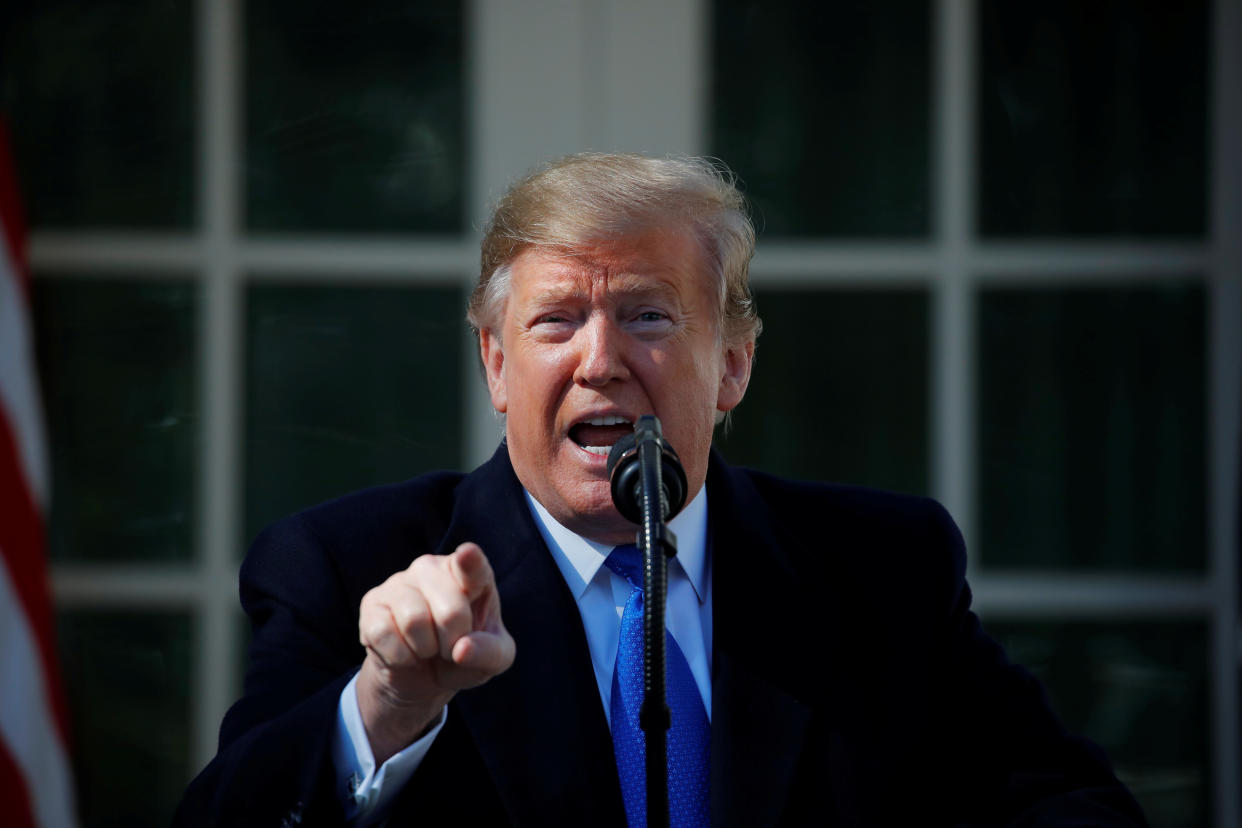A national emergency has been declared. Now what?

On Friday morning, President Trump declared a national emergency in order to secure funding for a border wall, triggering what will likely be a long legal battle before anything is built.
Trump’s statement outlined a scenario that would likely end at the Supreme Court, where he expects to prevail.
“I didn’t need to do this,” said Trump who compromised on the border deal Thursday, effectively averting another government shutdown. “But I’d rather do it much faster.”
Newsletter: The Yodel
Trusted news and daily delights, right in your inbox
See for yourself — The Yodel is the go-to source for daily news, entertainment and feel-good stories.
The spending deal included $1.375 billion for border barriers, but cannot be used to build a wall. Before signing the bill, Trump said he was not happy about the deal, which falls short of both the $5.7 billion he wanted and of the $1.6 billion the Senate offered last year.
Despite this loss, Trump is keeping his campaign promise to build a wall by declaring a national emergency, which he has discretion to do under the 1976 National Emergencies Act. If upheld, the declaration would allow him to re-allocate funds from other military purposes for construction of a wall.
There is no set definition of what is considered an emergency and Trump’s latest one will add to 31 other emergencies currently in effect.
In his announcement, he described what he thinks will happen next.
“We will have a national emergency and we will then be sued,” said Trump. “And they will sue us in the Ninth Circuit … and we will possibly get a bad ruling, and then we’ll get another bad ruling and then we’ll end up in the Supreme Court, and hopefully we’ll get a fair shake, and we’ll win in the Supreme Court just like the [travel] ban.”
He continued: “We won on the ban and we won on other things too. Probably [the] easiest one to win is on declaring a national emergency.”
Even before Trump’s announcement, Democratic congressional leaders announced plans for a resolution to block the emergency declaration. After he spoke, House Speaker Nancy Pelosi, D-Calif., and Sen. Chuck Schumer, D-N.Y., released a joint statement, calling it a “power grab” and vowing to use “every remedy available” to stop it.
“The Congress cannot let the President shred the Constitution,” the statement read.

Article 1, Section 9 of the Constitution vests the “power of the purse” in Congress. It says in part: “No money shall be drawn from the treasury, but in consequence of appropriations made by law..” After a national emergency has been declared, the House can pass a resolution to overturn the declaration as an abuse of power, according to the National Emergencies Act. That resolution would then be put to a vote on the Senate floor. If a joint resolution passes, Trump can veto it. A two-thirds majority of Congress would be required to overturn his veto before ending the emergency. If successful, this would be the first national emergency that Congress has vetoed.
Bruce Ackerman, a constitutional law professor at Yale, said there will be a fundamental constitutional debate about a president’s authority in addition to the anticipated legal fight.
“This effort to declare a national emergency is going to generate a true crisis,” Ackerman told Yahoo News. “The statutes say it is a crime unless the use of the military for domestic purposes is explicitly authorized. The emergency act that he invokes is a general statute, which does not explicitly authorize the use of military resources.”
He added: “This is not an issue with having to do with whether you are Republican or Democrat. If you are a serious senator who is concerned with constitutional, limited government, this is a crucial issue for you. This debate will be going on and meanwhile, the military is going to have to decide what to do.”
The emergency permits Trump to divert appropriations, pursuant to laws authorizing the military to construct roads and highways and to undertake civil defense projects. It also provides a basis for invoking eminent domain to seize private land for construction. Previously Trump mentioned using a “military version” of eminent domain. It’s unclear what he meant.
Under eminent domain, the federal government has the power to seize private property for public use provided the owners receive “just compensation.” Two-thirds of the border is privately owned, most of it in Texas, east of El Paso. Among those who stand to be most affected by the wall and are preparing to fight land seizures in court are families, Native American tribes, a one-room Roman Catholic chapel, and a butterfly sanctuary, which lost its suit against the administration Friday. These groups might seek to challenge the legitimacy of the emergency declaration.
_____
Read more from Yahoo News:
